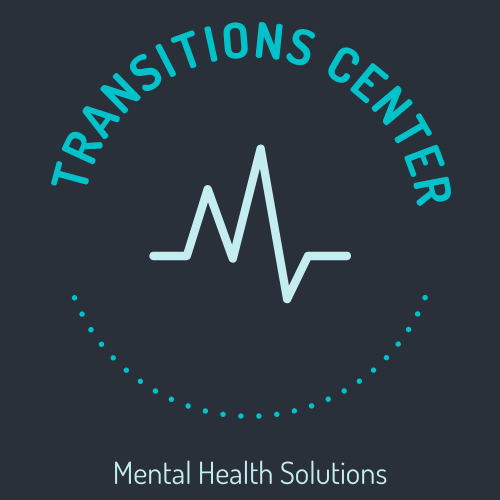Mental health is something that should be talked about more openly. According to the World Health Organization, “One in four people will experience a mental health disorder at some point in their life.” That’s a lot of people! And yet, mental health is often seen as a taboo topic. We need to change that. In this blog post, we will discuss eight ways that you can support others’ mental health.
1. Listen Without Judgment.
There are many benefits to listening without judgment, especially for those who suffer from mental health challenges. One of the key advantages is that it can help build trust and provide support and validation during difficult times. In addition, when people feel understood and accepted by others, they are more likely to be open about their struggles and seek out additional resources. This can be particularly helpful for those who are facing difficult situations, such as a mental health crisis or trauma.
Another advantage of listening without judgment is that it can help reduce stigma and increase empathy. By opening up the conversation about mental health issues, people may become more willing to seek help and support one another in their recovery efforts. Additionally, listening without judgment can help individuals feel less isolated and alone, which can boost their resilience and coping skills as they navigate the challenges of living with a mental health condition.
Overall, listening without judgment is an important skill for building supportive relationships and helping people who are struggling with mental health issues. By connecting with others in an open and non-judgmental way, we can all play a role in encouraging those in need to seek the support and guidance that they deserve.
2. Be An Advocate For Mental Health Awareness.
One of the most important ways that we can support and advocate for mental health awareness is by educating ourselves about the various forms of mental illness and learning what we can do to help. By becoming aware of the signs and symptoms associated with different conditions, we are better able to recognize when someone may be struggling and provide them with the support they need. Additionally, we can work to educate others about the importance of mental health and how it affects us all. By raising awareness about the need for more resources, we can help reduce stigma and encourage those who may be suffering in silence to reach out for help.
Another important way that we can advocate for mental health is by speaking up when we see cases of discrimination or injustice. Whether it is a policy that excludes people with mental illness from certain programs or an employer who refuses to hire someone based on their diagnosis, we need to speak out and take action against these types of injustices. By advocating for fair treatment and equal rights for all individuals, regardless of their mental health status, we can help reduce stigma and encourage those with mental illness to seek the support they need.
In short, advocating for mental health awareness is critical to helping people who are coping with mental illness. By educating ourselves about the needs of these individuals and speaking out against discrimination and injustice, we can create a more supportive and inclusive society that values all people, including those with mental health challenges. Ultimately, this can help us all live happier and healthier lives.
3. Educate Yourself On Mental Health Issues.
There is a growing body of research that shows that educating yourself about mental health and taking steps to learn more about it can be a powerful tool for improving the lives of people who suffer from mental health issues. Some of the key strategies that can help you get started include attending support groups, reading books and articles about mental health, and seeking professional guidance from a therapist or counselor.
One of the biggest benefits of educating yourself about mental health is that it allows you to build a better understanding of how the mind works and what factors can contribute to conditions like depression, anxiety, or bipolar disorder. By gaining this knowledge, you can better identify potential warning signs of mental health issues in yourself or others, and take steps to address these concerns before they become more serious.
Additionally, learning about mental health can help you develop strategies for managing symptoms and improving your overall well-being. This may include making changes to your diet, exercise routine, sleep habits, or social life. It can also involve practicing relaxation techniques, such as mindfulness meditation or deep breathing exercises.
Ultimately, becoming more knowledgeable about mental health is an important step toward improving the lives of people who struggle with these issues. By taking the time to educate yourself and learn more about mental health, you can not only gain a better understanding of what it means to live with a mental health issue but also help those who are affected by these conditions feel less isolated and more supported.
4. Seek Professional Help If You Need It.
One of the key benefits of seeking help for mental health issues is that it helps you gain a better understanding of what you are going through. Often, we may not be fully aware of the impact that our thoughts and emotions are having on us, and by speaking to a counselor or therapist we can gain insight into how our symptoms function. This can be particularly helpful for things like anxiety, where it is easy to misinterpret the physical and psychological symptoms you are experiencing.
Another important benefit of seeking help is that it provides us with support from others. For many people who struggle with mental health issues, isolation can be a common problem, as they tend not to want to reach out to loved ones for help. However, seeking professional support can provide you with a confidential space to talk about your feelings and make connections with others who are facing similar challenges. This can also be valuable in terms of self-care, as you will learn practical strategies for managing your mental health which you can put into practice at home or in the workplace.
5. Encourage Healthy Habits.
There are a variety of ways that encouraging healthy habits can help people who suffer from mental health issues. Firstly, regular exercise has been shown to be an effective tool for improving mood and reducing feelings of depression and anxiety. Additionally, eating a balanced diet can help ensure that people get the nutrients they need to support optimal brain function, which is essential for maintaining emotional well-being.
Another important way that healthy habits can help people who are struggling with mental health is by providing a sense of structure and routine in their lives. Many individuals who suffer from anxiety and depression struggle with feelings of uncertainty and lack of control over their circumstances, so having consistent daily routines helps them feel more grounded and able to face their challenges.
In addition to these specific benefits, encouraging healthy habits can also have a more general impact on mental health by promoting a sense of self-care and wellness in individuals. When people take the time to focus on their physical and emotional well-being, they are better able to deal with stressful situations, minimize negative thinking patterns, and avoid behaviors that can exacerbate their mental health issues. Overall, by adopting healthy habits, people are able to better manage and cope with the challenges of mental illness.
6. Be Mindful Of How You Talk About Mental Health Issues.
Sometimes we inadvertently participate in the stigma associated with mental health struggles by using words and phrases that belittle or minimize the concerns of others. When you’re talking about someone else’s mental health, be sure to use respectful language and avoid making jokes at their expense.
7. Volunteer For A Mental Health Organization.
If you want to do more to support those struggling with mental health issues, consider volunteering for a local organization or charity that works to promote mental health awareness and well-being. This can be a great way to give back while also learning more about the resources available in your community.
8. Practice Self-Care.
Finally, it’s important to remember that taking care of yourself is one of the best ways to support others’ mental health. When you’re struggling with your own mental health, you may not be able to help others effectively. Make sure that you take time for yourself and get the support that you need in order to stay healthy and happy.
When it comes to mental health, small gestures can make a big difference. If you’re not sure what to do, start with these eight ways to support others in their time of need. And remember, always reach out for help if you’re struggling yourself. We’re here for you.
About the Authors
Transitions Center for Natural Mental Health Treatments for a variety of physical and mental dependency issues and conditions. Substance use disorders are difficult to understand for many people. The physical and mental aspects of any substance disorder are complicated and unique to the individual suffering. The differences between physical and psychological dependency vary but have some similarities. Transitions Center for Natural Mental Health Treatments help the public know what to look for as a means of helping a loved one cope with the challenges of mental health disorders.
Hoping you found this article interesting! Thank you to Mary Jane’s CBD Dispensary, the fastest cbd direct online in USA. At Mary Jane’s CBD Dispensary, they provide high-quality and affordable CBD Hemp products. Their goal is to spread health and wellness by making their customers feel better with the use of quality cannabis remedies. They want you to get in touch so that one of their team members can help you find your perfect product or answer any questions about how cannabidiol might be able to improve your life.

